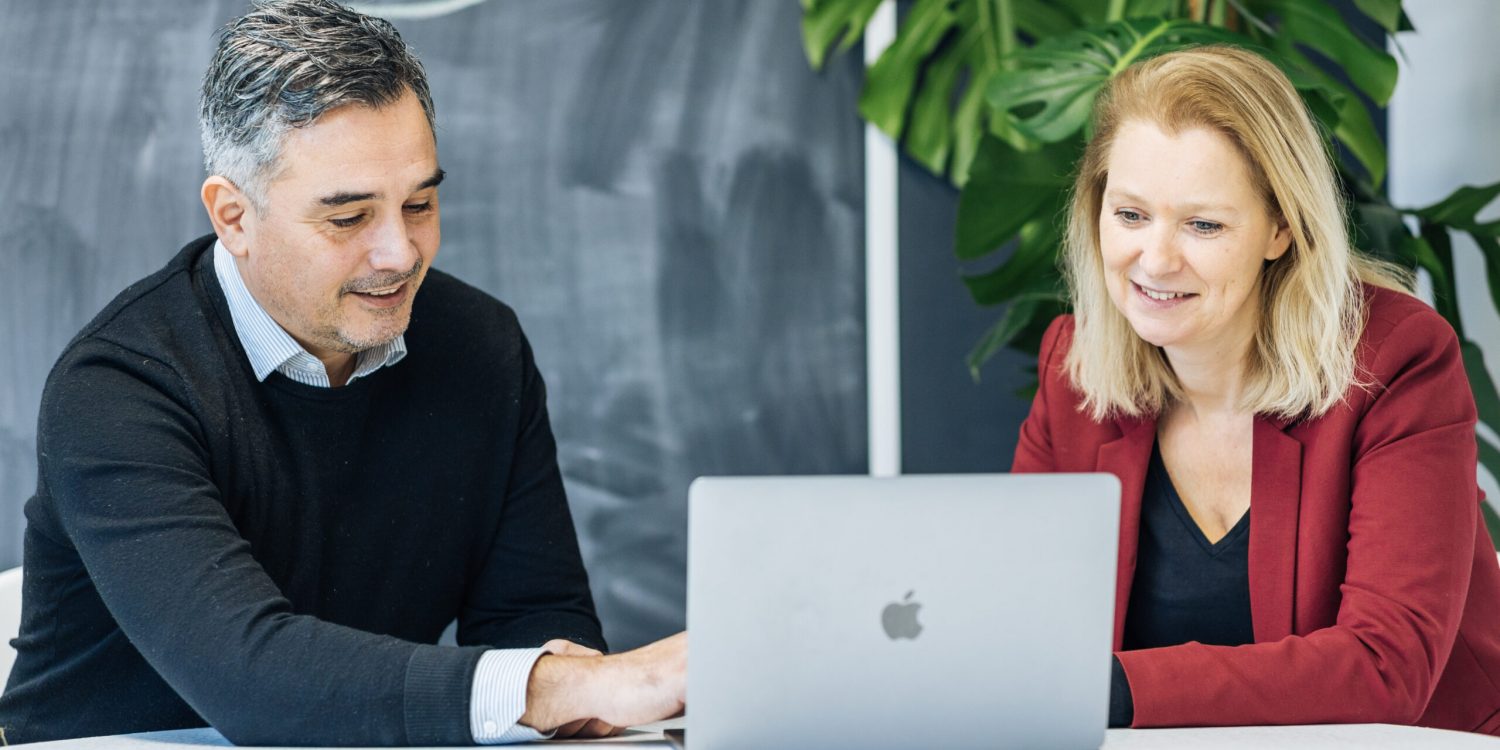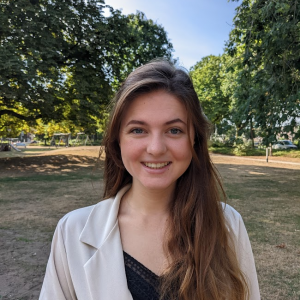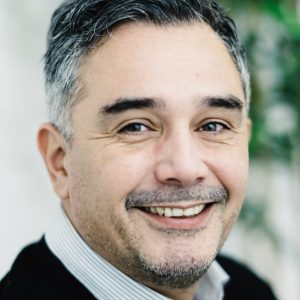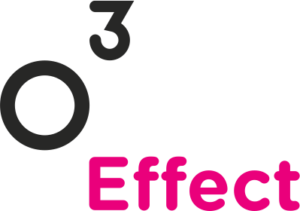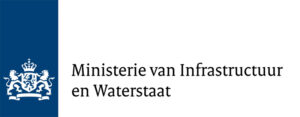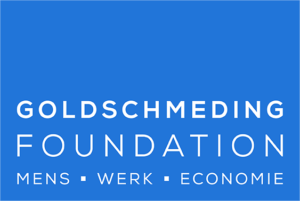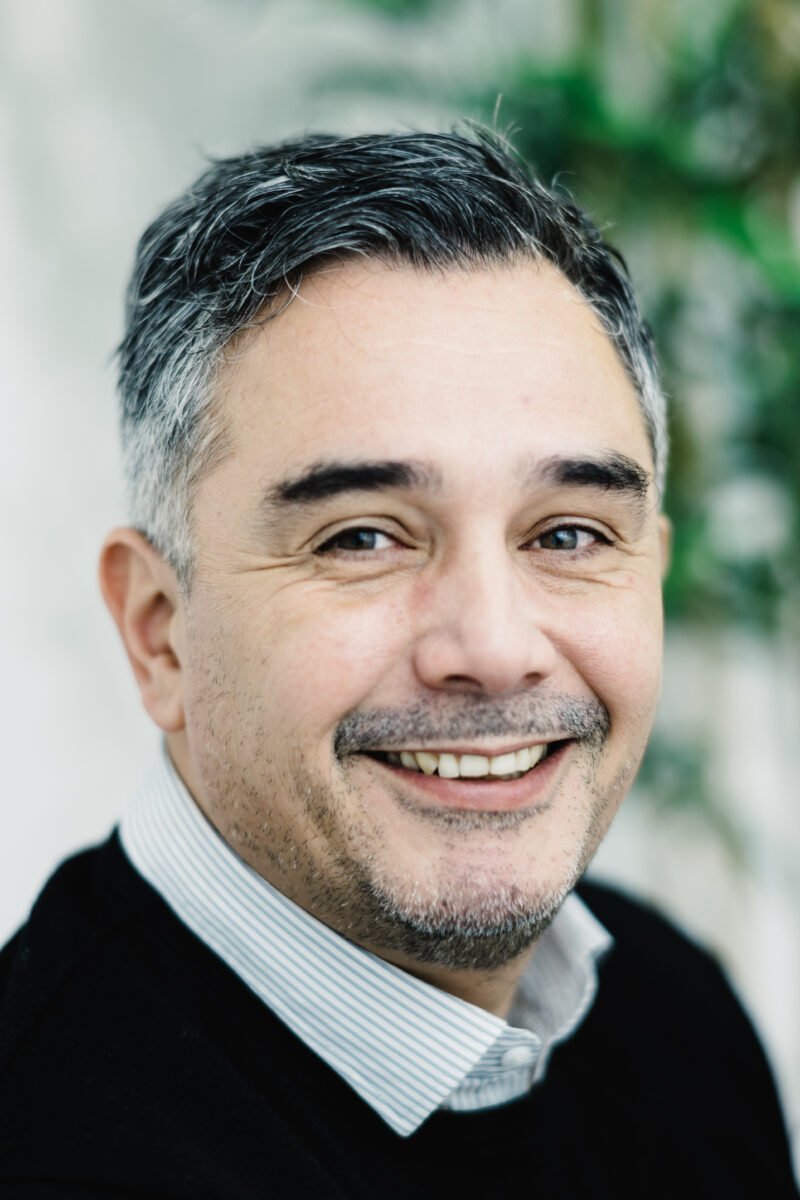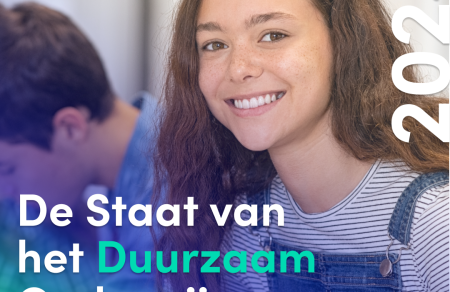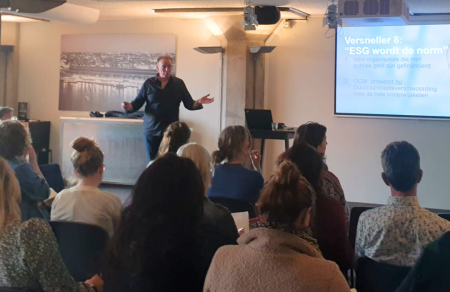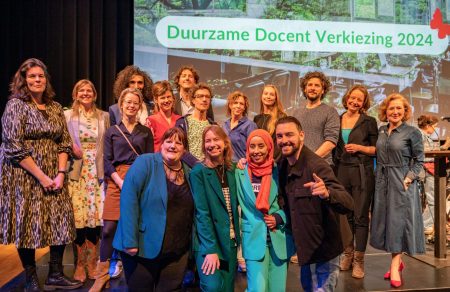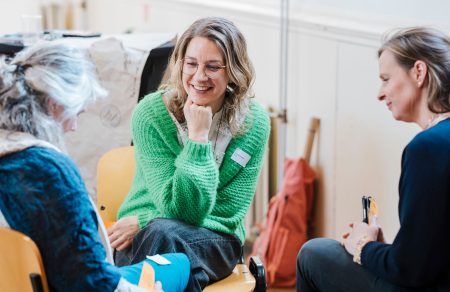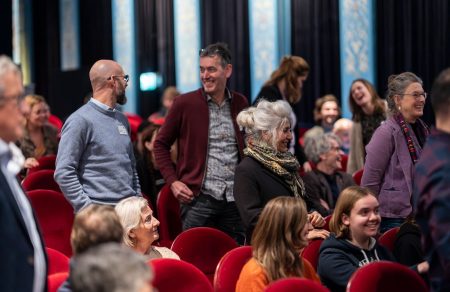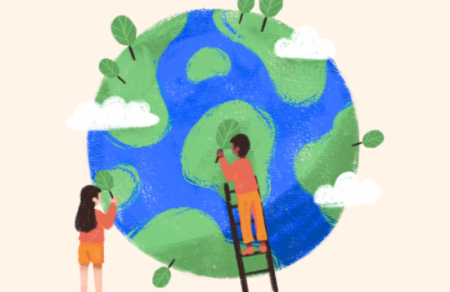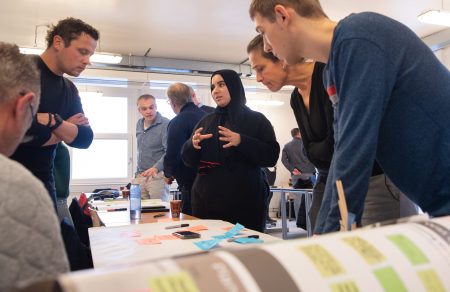This article is part of the Regioportret Utrecht (article 1/3). With it we visualize how educational institutions, companies and governments in the Utrecht region work together on 'circular skills': the skills needed in the circular economy of the future. We hope to inspire other regions to accelerate the transition to the circular economy.
Read article 2/3 hereRead article 3/3 here
They are downright passionate when it comes to educational innovation. A tad frustrated too, sometimes. But then Jacomijn de Vries and Guido Bastiaans have a grand goal in mind: to transform Dutch education in order to "learn for sustainable development. According to them, it is high time to let go of the current system. "We are educating for the future, aren't we? That means: learning to recognize the issues in the environment, with an inquisitive attitude."
Thanks to quite a career in education - as a teacher, school leader, rector and advisor, among others - Jacomijn de Vries and Guido Bastiaans had seen quite a lot before they founded education innovation agency O3-Effect in 2018. Guido: "My motivation has always been to provide the best possible answer to the question: what are we educating for? As far as I am concerned, education, from primary to scientific, should always be based on that question." Current education has veered to the qualifying side, he believes. While it also has an important formative role, both on a personal and social level. "You educate people for the future, right? With the many crises we are currently facing, that means: learning for sustainable development. Learning to see the issues in the environment, with an inquisitive attitude, focused on values."
Sustainability versus 'learning for sustainable development'
"Learning for sustainable development, which is what we focus on with O3-Effect, is different from learning about sustainability," Jacomijn explains. "The latter means gaining knowledge: what are sustainable materials? Or: how can you better reuse something? While learning for sustainable development is about learning to deal with the balance between people, planet and prosperity. Education where students work on local, current issues and gain knowledge and skills by now. You give them space to make their own trade-offs, rather than saying in advance: take these steps, then that will come out. The circular transition is one of the challenges you can apply this to, but you can also apply it to other issues, such as poverty. As long as the balance between those three interests is paramount."
Current system offers too little space
According to Jacomijn and Guido, especially in secondary education, there is little room for teachers to pick up issues from the environment as "developers" outside the school. To do so, they have to go against the education system, or do it on top of it in their own time. The educational innovators have experienced firsthand how difficult it is to innovate within the current system. Jacomijn: "That system appears to be intractable, we seem to do many things 'because that's the way we do them'. Why, for example, do you spend forty minutes talking as a teacher, when that might get to three students? What is basic knowledge anyway, and why did we divide it into subjects? Or endless teacher meetings that produce no concrete plans for students: they are not there because teachers necessarily want them, but that is 'the system'." So they decided to put something completely new next to that system. A new high school, focused on learning for sustainable development. Guido: "We had the concept all worked out. Of course we had the quality criteria, such as achieving the core objectives and a good care structure, in place. Yet the Education Inspectorate rejected our application on one of those criteria: citizenship. By the way, the basis of our concept! But the inspection did not make the link between citizenship and sustainable development. Eternal sin."
As many pinholes as possible
After this disappointment, Guido and Jacomijn did not throw in the towel. With O3-Effect they continue unabated with, as they call it, as many pinpricks as possible. Jacomijn: "We do that, for example, with an innovation lab, where we work with a development team of teachers, students and companies to see what current issues are in the environment and what that means for education. Or we experiment with not doing things anymore. We also involve the school leaders. Teachers often want to, but lack the support to take initiatives further - they are stuck in the system. We therefore try to design education in which they can try out other ways of teaching, possibly together with companies and experts. Then they see: 'hey, it can be done!' and get the action perspective to slowly integrate elements of it."
Identify circular skills
A good example of such a "pinprick" is the project the education innovators set up within the Consortium Utrecht, part of the Circular Skills program of Learning for Tomorrow. "Through the Circular Skills program, we came into contact with teacher trainers at Utrecht University of Applied Sciences. They wanted to know more about 'training for a circular economy.' We then brought parties together in a Utrecht consortium to consider how we can work together more structurally in this area. Soon we will start a pilot with an actual Utrecht circular building project. Together we will examine which circular skills are present in that project and which are needed. And then: how we can translate this to education." The goal is to do this with other projects as well, Guido says. "In one project you don't see all the circular skills coming up. With multiple projects, we can build a database of all the circular skills we come across. Then we can determine what we want to include in a course's curriculum anyway."
Hub for structural cooperation
As far as Jacomijn and Guido are concerned, there will even be a physical place in Utrecht where this kind of collaboration takes place on a structural basis. "A kind of hub, where companies, municipality, province and educational institutions work on current projects and initiatives from the city, in order to immediately develop current education based on that practice. Instead of as an educational institution engaging a company once that gives students an assignment. That's great, but it takes a lot of effort and then it's done. Such a hub is really a learning system outside existing organizations." As far as Jacomijn is concerned, as a side effect, the hub can even help solve the teacher shortage. "Imagine that as a teacher - in addition to a number of days in front of the classroom - you are given the space to go to companies one or two days a week to find out exactly what you are training for and may develop education with them on that. That makes the profession much more fun, doesn't it?"
Author: Annemarie Teuns
Photography: Pim Geerts
Want to learn more about educating for an inclusive, sustainable future?
Sustainability Skills
Guido Bastiaans
Guido is an educational innovator with a drive to understand the world around him and ask the questions that are not always obvious. In doing so, he makes people think and inspires them to look outside the box. In addition, Guido has years of experience in secondary education as a manager and teacher. The question why we do something and from which social interest is always at the forefront of his mind.
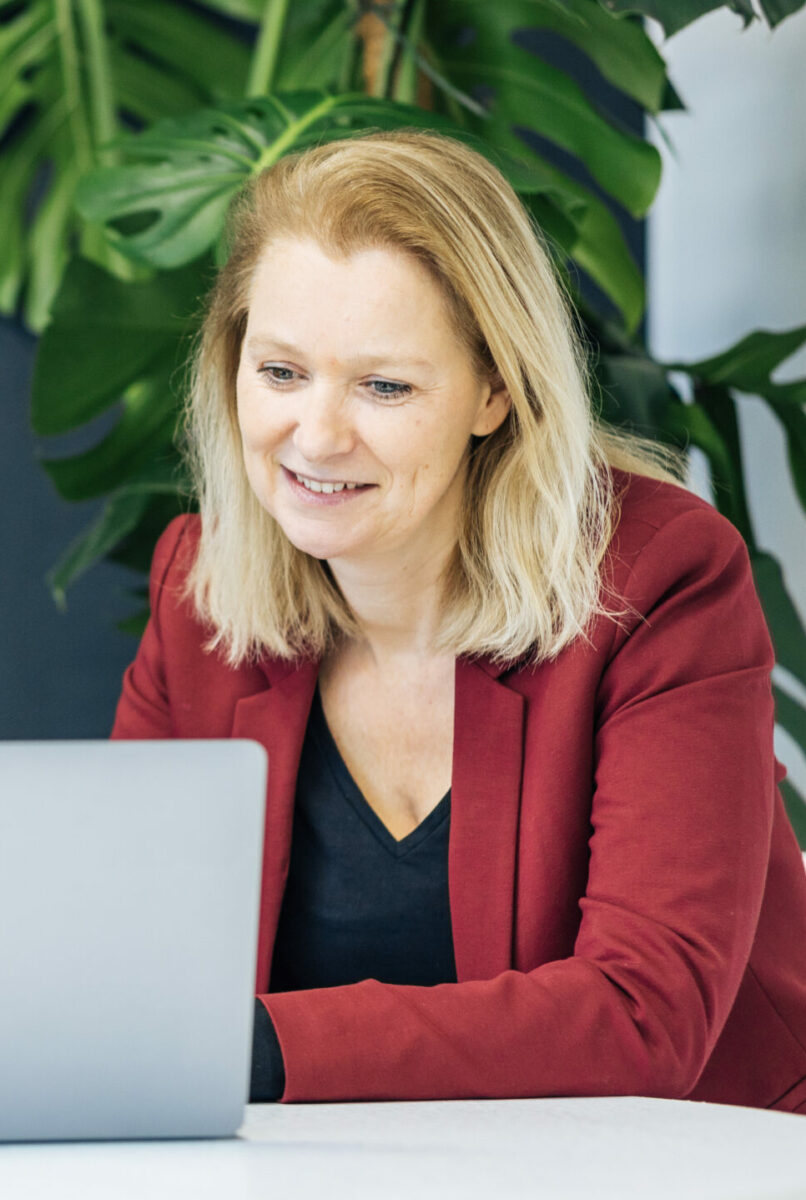
Jacomijn is an inspired educational developer with a strong eye for organizational and group processes. She has extensive experience as a school leader and educational consultant, so she knows the dynamics within schools well. Translating a mission/vision into concrete visible activities and processes, is for Jacomijn the core of (behavioral) change in an organization.
